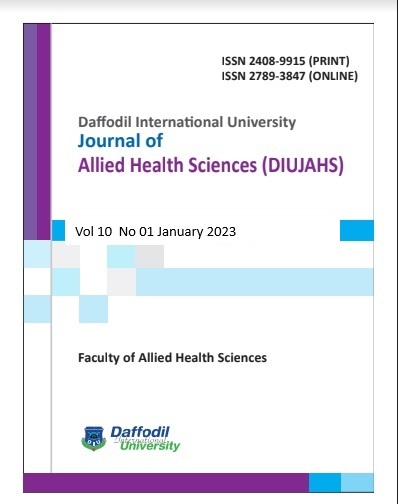A REVIEW ON THE IMPLICATIONS OF THE PREVAILING CONCEPTUAL MODEL OF DISABILITY IN BANGLADESH
DOI:
https://doi.org/10.36481/diujhss.v10i1.nxt8we87Keywords:
Disability,, Models of Disability,, Person with Disability,, BangladeshAbstract
There are significant variations in health outcomes between those with disabilities and those who do not. Persons with disabilities (PWDs) constitute a substantial and diversified minority community in Bangladesh. Accidents, inaccurate medical diagnosis, maternal malnutrition, a shortage of skilled birth attendants and nurses, polio, typhoid, crime and violence, acid burn, child marriage, marriage with relatives, and other reasons all contribute to disability in Bangladesh. Rehabilitation professionals must understand a number of
disability models in order to work with people who have impairments. To establish a theoretical foundation for this review, the pros and cons of several models of disability are discussed, including the moral model, the medical model, the social model, the bio-psycho-social model, and the International Classification of Functioning, Disability, and Health (ICF) model. Despite the fact that there is a lack of recorded data and information on disability models in Bangladesh, the review article explored the ramifications of the prevailing disability model including the challenges and initiatives taken for PWDs in Bangladesh. The policy trend of progress clearly reveals that the disability model in Bangladesh is still under development. Bangladesh appears to be ramping up its transition from the Medical Model to the Bio-Psycho-Social Model.

